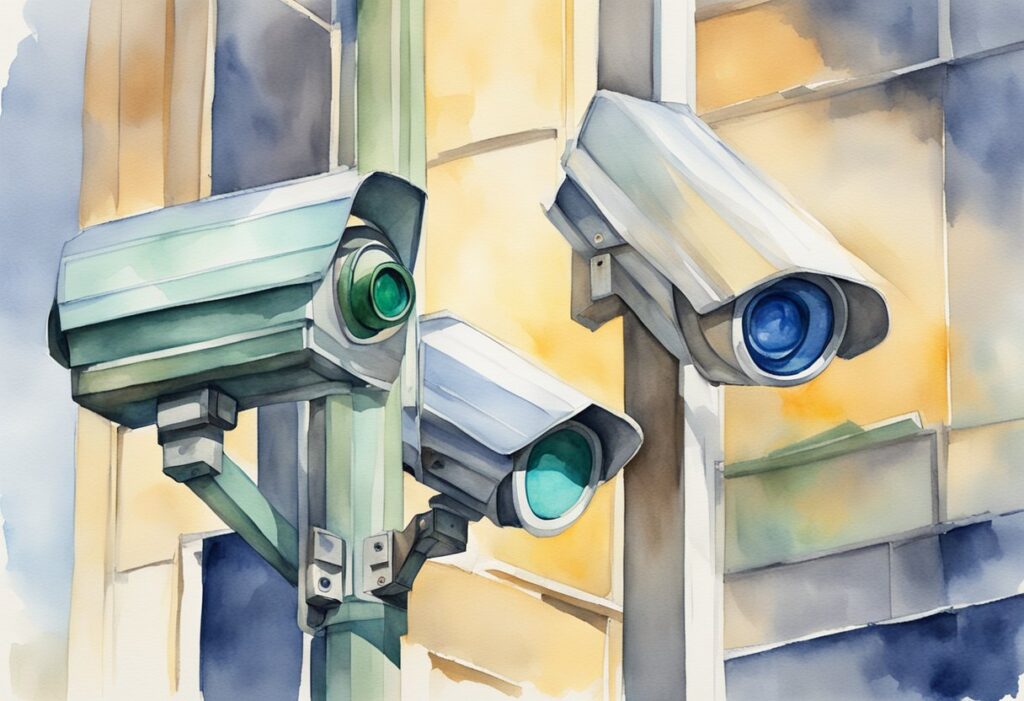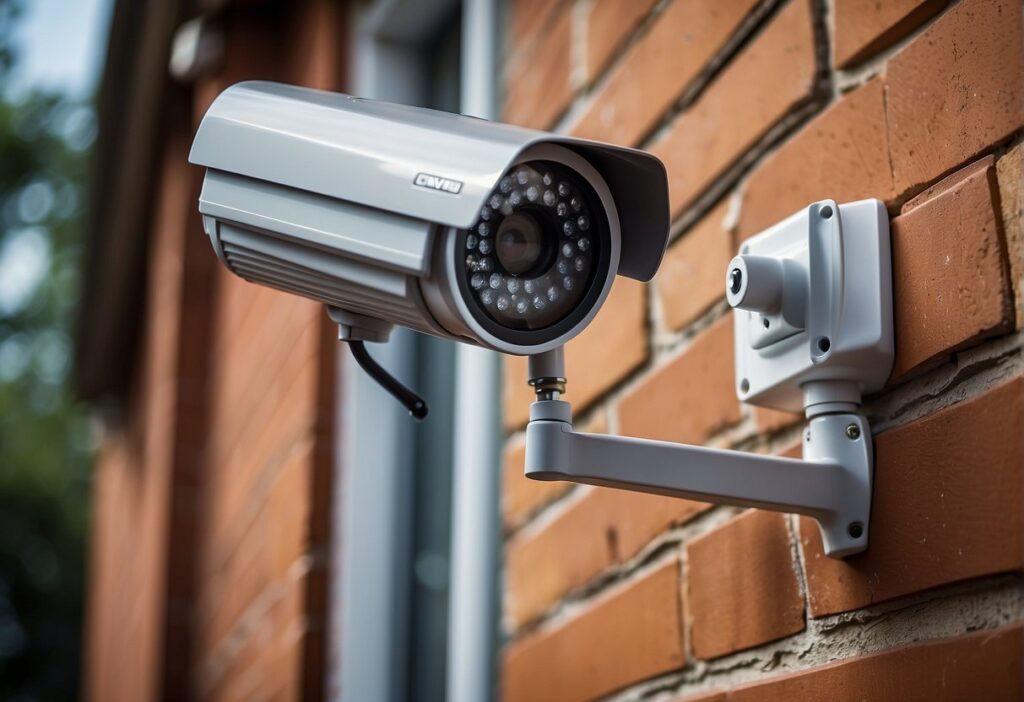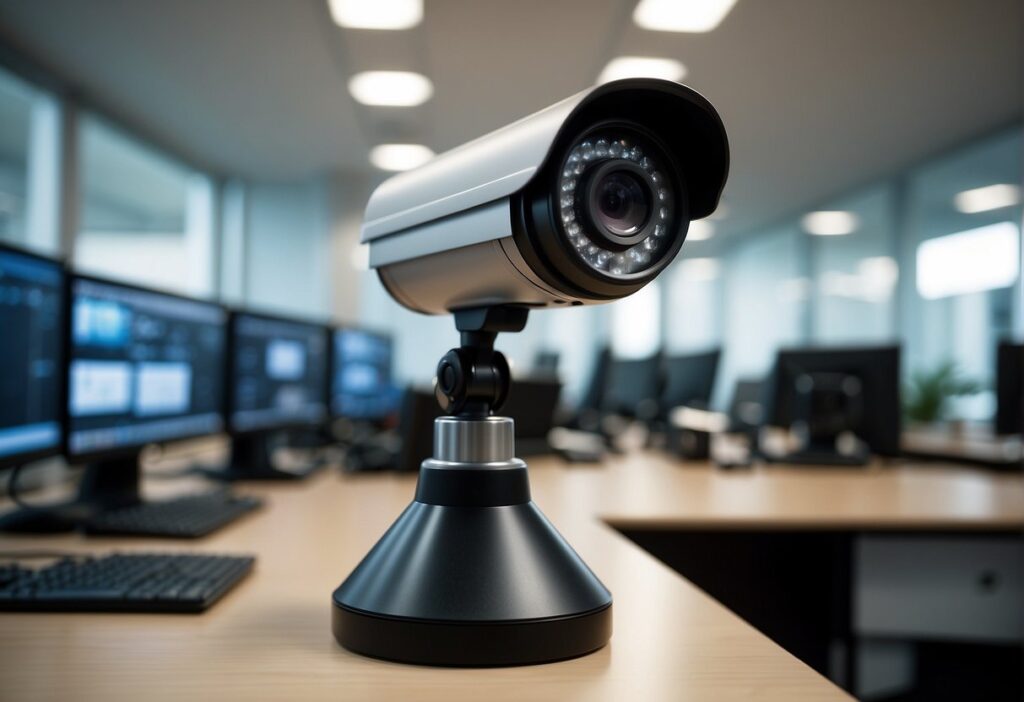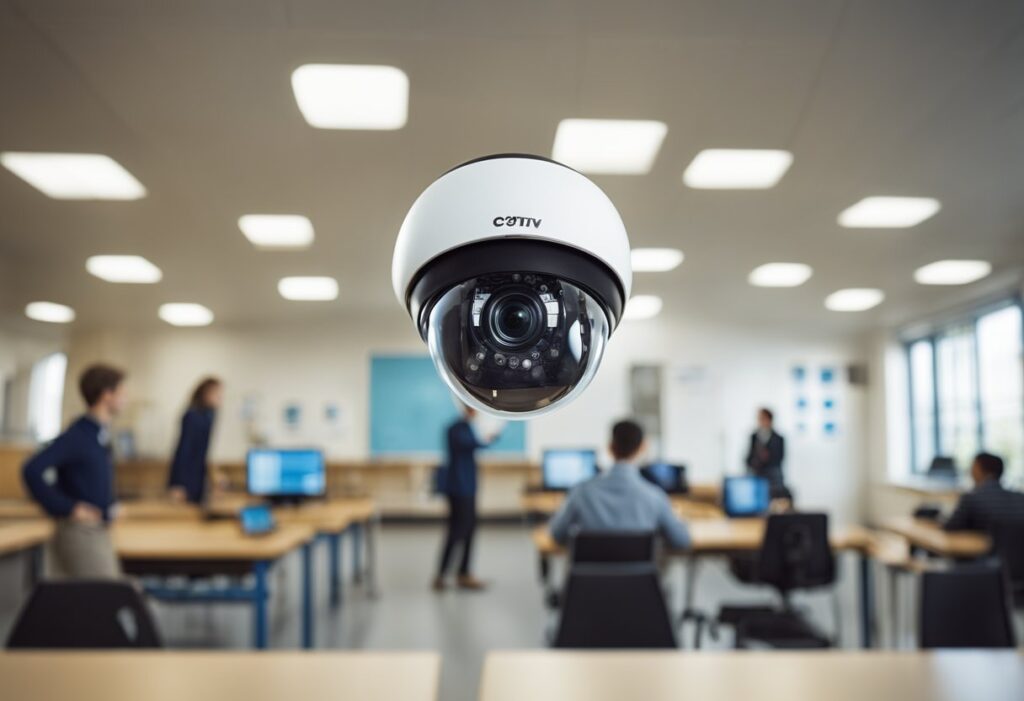10 Disadvantages of CCTV
CCTV systems, prevalent in both commercial and public domains, offer the assurance of 24/7 surveillance but carry with them often-overlooked downsides, including privacy issues and ethical dilemmas.
These systems, while deterring misconduct, come with inherent security flaws and entail significant financial and practical commitments due to installation, upkeep, and necessary upgrades.
Key Takeaways
- CCTV systems’ round-the-clock surveillance raises complex privacy issues.
- Inherent vulnerabilities in CCTV setups can challenge the robustness of security systems.
- The financial implications and ongoing maintenance requirements impact the overall effectiveness of CCTV.
10 Disadvantages of CCTV: Privacy and Ethical Concerns
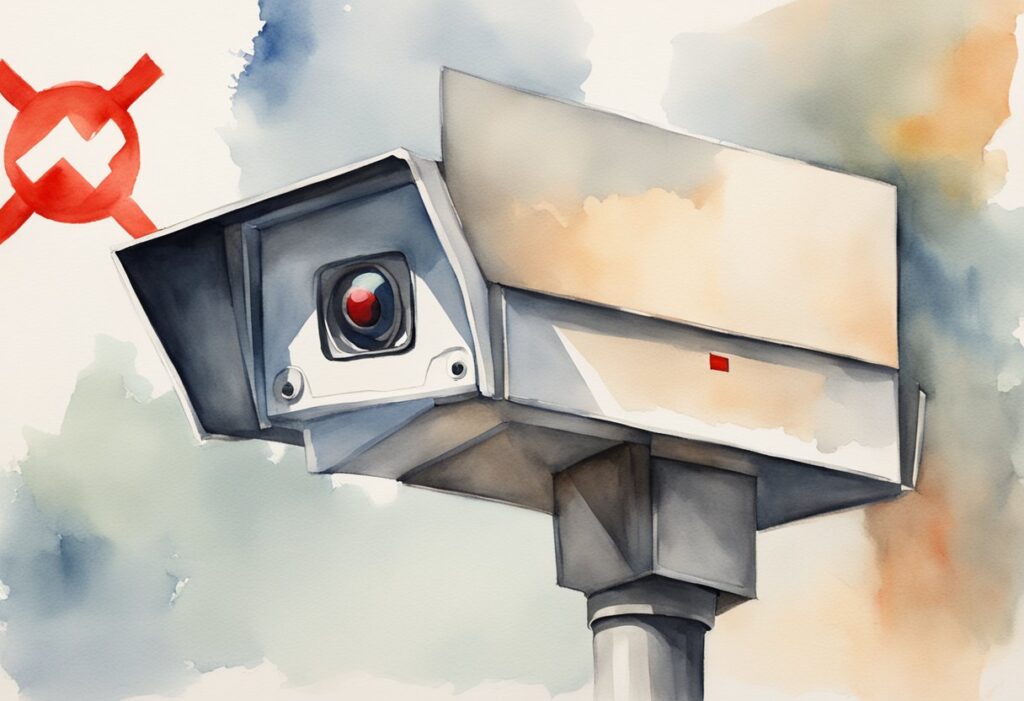
Closed-circuit television (CCTV) systems have been instrumental in providing security, but they raise important privacy and ethical questions regarding surveillance practices.
Invasion of Privacy
Privacy concerns arise when security cameras are placed in areas where individuals expect privacy.
For instance, placing CCTV in spaces like changing rooms or restrooms is widely considered an infringement upon personal space. The ACLU highlights the intrusive nature of public video surveillance, emphasizing its potential to capture individuals in private moments without their consent.
Abuse of Surveillance Footage
Surveillance footage may be misused by those with access to it. Episodes of unauthorized sharing or using footage for purposes other than security have been reported.
For example, personnel might use video from CCTV inappropriately, leading to blackmail or public shaming. This misuse underlines a significant ethical dilemma of CCTV, where the boundary between security and privacy blurs.
Impact on Civil Liberties
CCTV deployment can lead to a greater sense of safety, yet it may also impinge on civil liberties. There’s a concern that constant surveillance in public places could stifle free speech and the right to protest.
The New York Times discusses this tension, noting the potential for security cameras to act as tools for state monitoring rather than mere crime prevention.
Security Limitations and Vulnerabilities
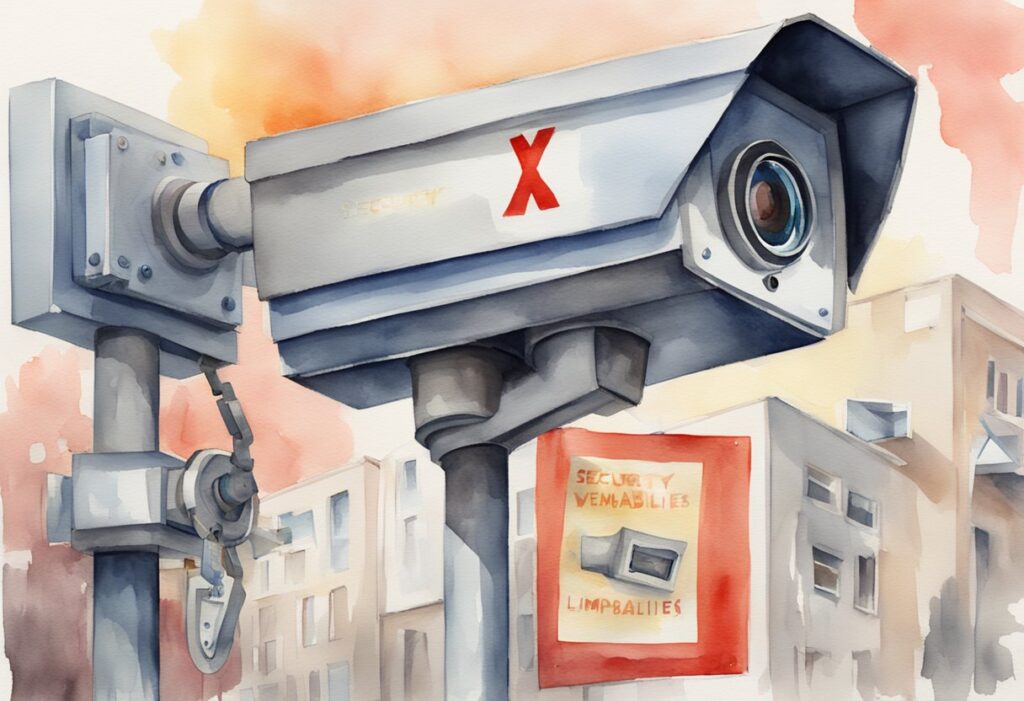
While CCTV systems are widely used for security purposes, they face limitations in deterring crime and can exhibit vulnerabilities that might compromise their effectiveness.
Effectiveness Against Crime
Security measures involving CCTV cameras are not always effective in stopping criminal activities. For example, a study might find that property crime rates do not significantly decrease in areas with an increased number of security cameras, suggesting that CCTV may not be a strong crime deterrent in every context.
Vulnerability to Hacking
CCTV systems are vulnerable to hackers, who can exploit weak security protocols. Instances have been recorded where hackers have gained access to live feeds from security cameras, thereby compromising the integrity of the security measures in place.
False Sense of Security
Relying solely on CCTV cameras can give property owners a false sense of security. It is crucial to understand that while security cameras can monitor areas, they do not fully prevent unauthorized access or guarantee the capture of criminals.
Financial and Practical Considerations

When considering CCTV systems, businesses and individuals face financial and practical challenges. These include initial outlay, ongoing maintenance costs, complexities involved in setup, and the management of data storage.
High Costs of Implementation and Maintenance
Installation costs for a comprehensive surveillance system can be substantial. For instance, a business might spend anywhere from a few hundred to several thousand dollars per camera. This is especially true if there is a need for high-resolution cameras with advanced features like night vision or motion detection.
Additionally, the maintenance of these systems introduces a continuous cost that includes repairs, updates, and potentially, the replacement of outdated equipment.
Complexity of Setup
Setting up a CCTV system is not always straightforward, especially for complex business environments. It involves an assessment of the premises, selection of optimal camera placement, and configuration of the network for the cameras to operate effectively.
The technical know-how required for installing a professional-grade CCTV system poses challenges for businesses and might necessitate hiring specialist contractors, further increasing the costs.
Storage and Management Issues
Effective storage and management of the footage captured by CCTV systems are critical but can be cumbersome and costly. High-definition video produces large amounts of data, necessitating extensive storage solutions which can be expensive.
For instance, a business may need to invest in additional servers or cloud-based storage services to manage the data load, which can create recurring costs into the thousands depending on the size and scale of the surveillance system. Managing and securing this data to ensure privacy and compliance with relevant regulations adds another layer of complexity and potential cost.
Technological Constraints and Performance Issues
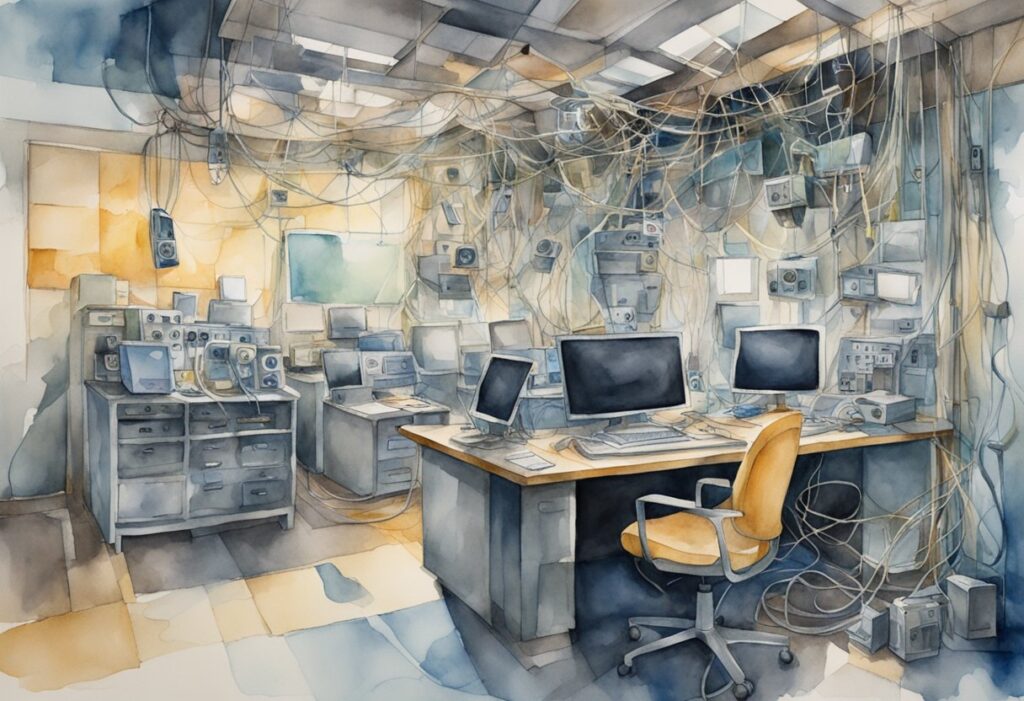
CCTV systems are subject to various technological constraints that can impact performance. These issues can manifest through camera quality, coverage limitations, and reliability concerns.
Camera Quality and Limitations
Resolution and Clarity:
- CCTV camera resolution impacts footage clarity.
- Digital cameras: High-definition video capabilities.
- Analog cameras: Often have lower resolutions.
- Importance in specific applications:
- Facial recognition
- License plate identification
- Resolution comparison:
- Analog cameras: Up to 0.4 megapixels.
- Digital HD cameras: 2 megapixels or more.
Low-Light Conditions:
- Surveillance camera performance in low-light conditions:
- Older models: Often perform poorly in low light.
- Modern cameras: Include night vision, but quality varies.
- Image quality differences at night:
- Varies widely between camera models.
- PTZ (Pan-Tilt-Zoom) cameras:
- Offer improved low-light performance.
- Limitations: Slower autofocus and zoom in dim settings.
Limitations in Surveillance Coverage
Blind Spots:
- Limitations of a single surveillance camera:
- Cannot provide complete area coverage.
- Need for multiple cameras:
- To cover blind spots.
- But increases cost and complexity of the system.
- Wireless cameras:
- Offer flexible placement.
- But require strong network support to avoid signal dropouts.
Field of View:
- Camera field of view limitations:
- Dictated by the lens.
- Fixed lens cameras:
- Constant field of view.
- Risk: Missing peripheral activity if too narrow.
- PTZ (Pan-Tilt-Zoom) cameras:
- Adjustable field of view.
- Risk: Missing critical moments if aimed incorrectly.
Technical Failures and Reliability
Power Outages:
A power failure can be crippling for wired surveillance systems, which may not have backup power sources. Wireless cameras may continue to operate on battery power, but their functionality is limited until the main power is restored.
For example, during a power outage, a camera with a small battery may only last a few hours.
Connectivity Issues:
Surveillance systems rely on continuous connectivity, especially in the case of IP and wireless cameras which transmit data over a network. Network issues can interrupt the video feed, leading to loss of surveillance capability.
Wired systems provide more stable connectivity but are susceptible to cable damage which can disrupt service.
Impact on Society and Legal Implications
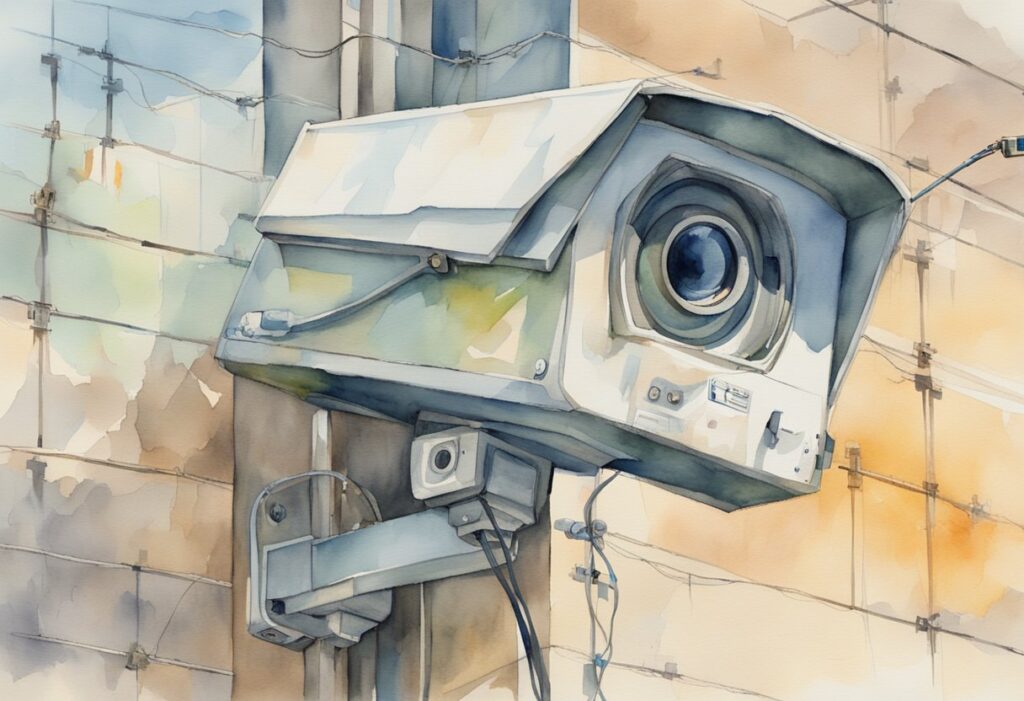
CCTV systems have profound implications on society, varying from altering public behavior to challenging existing legal frameworks.
They raise concerns about privacy for individuals and have led to a complex array of regulations that business owners, government agencies, and operators of public spaces must navigate.
Effect on Public Behavior
The presence of CCTV in public places can have a deterrent effect on crime but may also alter the behavior of law-abiding citizens. Studies have shown that areas with surveillance such as parking lots and busy streets may experience a change in how the public interacts, with some individuals feeling more guarded and less free in their actions.
Conversely, surveillance cameras can provide a sense of security, potentially encouraging economic activity by making business districts feel safer.
Legal Restrictions and Compliance
Laws governing the use of CCTV vary widely and can impact how businesses and governments employ surveillance technology. For instance, the deployment of facial recognition software has prompted legal action and legislative scrutiny due to privacy concerns.
Government agencies must comply with strict regulations that often include how data is stored and who can access it. Businesses, meanwhile, need to be aware of consent laws and the right to privacy, which can sometimes require signage informing people they are being recorded.
Conclusion
10 Disadvantages of CCTV
CCTV systems have been instrumental in enhancing security capabilities. However, they present several disadvantages. They include privacy concerns, as continuous recording can lead to misuse of personal information. Financial costs are another factor; the initial setup and ongoing maintenance can be significant for some users.
Dependence on technology can result in over-reliance, with some users believing in a false sense of security. Technical issues such as system failure or data loss can leave an area unexpectedly vulnerable. Cameras also cannot stop crime from occurring; they can only record it.
Legal issues are prominent, with regulations differing by location and evolving as technology progresses. This requires users to stay informed to ensure compliance. Additionally, cameras can be susceptible to vandalism or tampering, which can diminish their effectiveness.
Ethical dilemmas arise as the presence of cameras can be interpreted as a lack of trust in employees or the community. Lastly, the presence of CCTV does not guarantee crime deterrence, as they may simply shift criminal activity to less surveilled areas.
